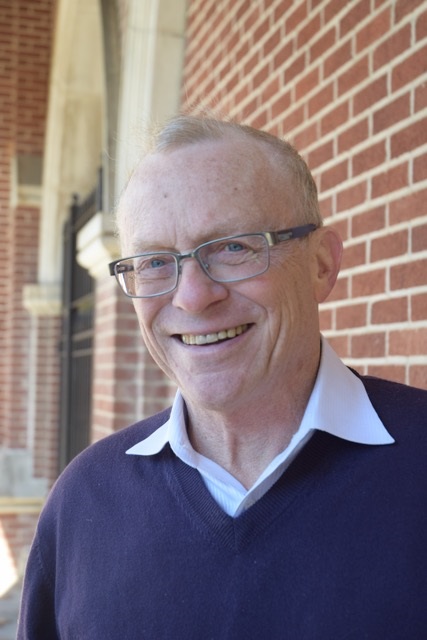SERVANT LEADERS
Matthew 23:1-12
Then Jesus said to the crowds and to his disciples, 2 “The scribes and the Pharisees sit on Moses’ seat; 3 therefore, do whatever they teach you and follow it; but do not do as they do, for they do not practice what they teach. 4 They tie up heavy burdens, hard to bear,and lay them on the shoulders of others; but they themselves are unwilling to lift a finger to move them. 5 They do all their deeds to be seen by others; for they make their phylacteries broad and their fringes long. 6 They love to have the place of honor at banquets and the best seats in the synagogues, 7 and to be greeted with respect in the marketplaces, and to have people call them rabbi. 8 But you are not to be called rabbi, for you have one teacher, and you are all students. 9 And call no one your father on earth, for you have one Father—the one in heaven. 10 Nor are you to be called instructors, for you have one instructor, the Messiah.11 The greatest among you will be your servant. 12 All who exalt themselves will be humbled, and all who humble themselves will be exalted.
“The scribes and the Pharisees sit on Moses’ seat; therefore, do whatever they teach you and follow it; but do not do as they do,
Jesus is often portrayed as standing for the acceptance of grace and against the judgment of the law. But, such thinking is too simple. It throws the baby out with the bath water.
In ordinary life, the rules of the road include speed limits and stop signs. These rules are designed for our safety and for the safety of the community. But they will most certainly be broken if you are rushing your injured child to the hospital. In fact, NOT speeding, could well contribute to death. It is one thing to have basic guidelines for living and quite another to make them absolute. The familiar New Testament example, is balancing the requirement to honor the Sabbath with the needs of a sick person or an animal trapped in a ditch. Jesus argued over and over again that it was the spirit of the law—not the law itself that needed to be obeyed. Unfortunately, honoring the spirit of the law creates a brand new set of problems. The moment we make exceptions, we must ask—what is a sufficient emergency to justify speeding or running a stop sign.
The scribes and the pharisees spent their lives seeking to answer such questions. Unfortunately, each distinction, each exception raised another set of questions. If we allow that there are exceptions to the speeding laws, exactly how fast is too fast. It is a process of discernment that never ends. Jesus respected that process and expects the same of us. For Jesus the purpose of the law was to guide us toward God and guide us toward our neighbor. Figuring out how to do that in real life is never ending and never certain. It is a much harder way to live than having clear cut ‘right’ and ‘wrong’.
At their best, the scribes and the Pharisees devoted their lives to such discernment. At their worst, they made rules which divided and judged people. When our search for what it means to love leads us to humility, the law guides and helps us. When our search ends with lines in the sand marking truth or God’s will, we divide and judge. That is when we usurp God in the name of God. This usurpation is what Jesus could not tolerate in any religious leader.
“…but do not do as they do, They tie up heavy burdens, hard to bear, and lay them on the shoulders of others…They do all their deeds to be seen by others…They love to have the place of honor at banquets and the best seats in the synagogues…”
The scribes and Pharisees taught that the highest value was to love God and love neighbor; they taught ‘our help is in the name of the Lord; they taught that what the Lord requires is to do justly, love mercy and walk humbly. They spent hours of contemplation and debate trying to practically define those ideals but many of them did not practice what they preached—and perhaps worse, did not have the humility to be accountable for their human failings.
Jesus bluntly the accused the pharisees of not putting their trust in the Lord. Secular rather than spiritual values governed their behaviors. When prestige, deference and privilege are the secular markers of social value, our differences become statements of relative worth rather than definitions of our uniqueness. Rather than protecting the vulnerable, Jesus accuses the religious leaders of slipping into entitlement. They did not want the inconvenience or the responsibility of seeing the vulnerable. It is far easier to say we deserve—and they do not. ‘They’ don’t work hard enough. ‘They’ aren’t ambitious enough.’ Or worse, the status quo is a reflection of God’s favor.
Jesus had no patience for such behaviors. Whenever we rely upon secular validation, we participate in the ranking of ourselves and others. Are we enough? What must be done to be enough? By claiming special status for themselves the pharisees demeaned the people ‘under’ them. But, before we get too excited about pointing out their hypocrisy, we must face our own. How many times do we judge on the basis of a political yard sign? How many times do we stereotype and argue against straw men rather than actually engage with other people. We are more likely to be condescending than loving. Very few of us practice what we preach. We are better served to be mindful of the log in our own eye before we point to the speck in someone else’s.
“The greatest among you will be your servant. All who exalt themselves will be humbled, and all who humble themselves will be exalted.”
After Jesus calls the Pharisees (and us) out for lording it over others, he points to an entirely different way of relating and leading. He says life is found in the ways we affirm others— not in the ways we seek to distinguish ourselves from others. There are many differences between us. Some are smarter; some are handier. Some have a history of making poor decisions. Some are raised in privilege. Some work harder. Secularly we value some of these traits over others and we use them to give us our sense of worth. The issue is not that some are smarter or more athletic or more articulate or pious. Those differences are obvious. The question is: “Do those differences alter our standing with God.
Contrary to any secular common sense, the answer is NO. God wants us to use and develop what we have. That is very different from using our gifts (or our limitations) to provide ourselves with our place in the pecking order. We cannot explain what we have been given but we are expected to live in the knowledge that what we have been given is a gift. That’s what it means to depend upon God.
Jesus’ way reflects spiritual values that are in direct conflict with secular ones. A servant leader who is measured by how much she enhances others instead of controlling others is almost incomprehensible. In the secular political arena, seeking advantage, seeking power over others, and projecting images of strength are the currency of reelection. Even as I disagree with this model of governance, there is nothing new about it. The Romans used a bundle of rods with a projecting ax blade, called a fasces, to symbolize the power and authority of Roman government. The rods reminded the populous that infractions could lead to beating and serious infractions could lead to death. FDR was very careful not to be seen in a wheelchair. It wouldn’t do to have a disabled president. LBJ elevated patronage systems to influence votes to a fine art. He was a notoriously capable arm twister. Part of Trump’s appeal is his unapologetic ‘saying it like it is.’ Of course he will act to enhance himself and his allies. What is the point of having power if you don’t use it?
Humility and deference to others can only be sustained when we stand on the foundation of God’s grace. When we rely upon a loving God and when we believe there is nothing that can separate us from God, we no longer need to prove ourselves. We no longer need to be enough. We are free to love others because we have been loved. We are safe with God.
That good news is what we must rely upon in the coming weeks. In less than a week, no matter who wins the election, almost half of our country will be unhappy. The same will be true in our community and in our church. Listen to Jesus. To the victors, do not lord it over others. And to the defeated, do not be seduced by fear. Do not let political victory or defeat define you. Our job is to love as best we can and trust that God is working his purposes out.
Let the measure of your life be the ways you enhance others. Let it be so.
Vernon Gramling is a Parrish Associate at DPC. He has been providing pastoral care and counseling for over 45 years. You can find more about Vernon, the Faith in Real Life gatherings and Blog at our staff page or FIRL.



